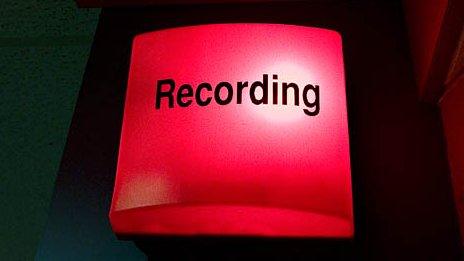Why can't we let go of our old tech?
- Published
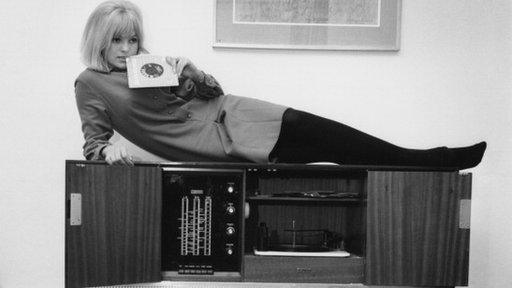
Vinyl is enjoying a revival with more than one million sales recorded in the UK in 2014 for the first time in 18 years
Looking at some of the latest tech news, it's tempting to wonder whether we've all jumped out of the same DeLorean famously driven by time travellers Doc Brown and Marty McFly in the 1985 film Back to the Future.
In January 2015, the ZX Spectrum games console - originally launched by Clive Sinclair in 1982 - went back into production in the UK and will be sold pre-loaded with 1,000 classic games.
The same month, Sony brought a 21st Century twist to its classic personal stereo the Walkman, a brand it launched in 1979 and retired in 2010, in the form of a high-end digital music player.
Ion Audio also unveiled a new record player - the Air LP, a turntable equipped with bluetooth for music streaming. It also has USB connectivity so it can be plugged in to a computer.
And in the gaming zone at this year's Consumer Electronics Show in Las Vegas, nestling between the Xboxes, Playstations, 4K graphics and virtual reality headsets, was a machine with origins dating back at least 250 years.
That device was the humble pinball machine - the earliest recorded being the bagatelles of 18th Century France.
So why can't we let go of our old tech?
'Design v tech'
"As is the case in fashion or furniture, retro is quite attractive," said analyst Carolina Milanesi from analysts Kantar.
"With tech, however, it gets tricky as you need to deliver value. In some cases, vendors deliver new tech in a retro package while in others the technology, while improved in specs, remains pretty close to the initial offering."
While using a brand like the Walkman is a good sales tactic, ultimately it is a long way from the original in terms of what it offers - and its price tag (£949) is steep, she added.
"Personally, I believe, that design versus tech would work better as a retro offering - but even so the appeal would be limited."
Arcade appeal

Barcade only stocks classic arcade games
In America, old arcade games are enjoying a revival thanks in part to the success of drinking establishments like the chain Barcade, where drinkers can quaff locally produced beers while indulging in some classic arcade entertainment.
"Our most popular games are the classics like Ms Pac Man and Donkey Kong and also the multiplayer games like Teenage Mutant Ninja Turtles, the Simpsons, NBA Jam and X-Men," said Barcade CEO Paul Kermizian.
"We only feature classic video games."
Some traditional games have had to adapt to survive however.
Pin power
Chicago-based manufacturer Stern Pinball, founded in 1986, treads the line between offering a nostalgic product but with a contemporary hook - the firm has just released three new pinball tables based around cult franchises WWE (World Wrestling Entertainment), Star Trek and the Walking Dead.
"We think we're part of the future," said founder Gary Stern.
"It's not just a ball bouncing round - it's a game, there is a sport to this."
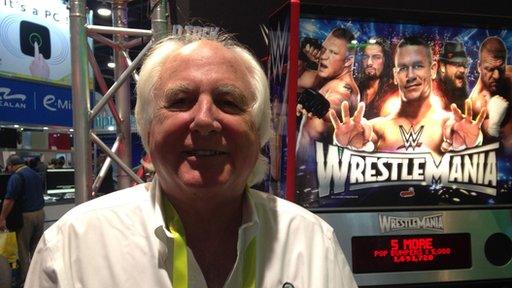
Stern Pinball CEO Gary Stern says he represents "the player in the pub who's had a bucket-and-a-half of beer"
While the majority of Stern's individual customers are "50 plus, used to play pinball in their 20s", the 25-30-year-old crowd is also becoming a target market.
"We realised we had to make different games for different people - one size doesn't fit all," said owner Gary Stern.
"We're trying to interest new players while keeping our core customers.
"But it's still basically a bat/ball mechanical action machine," he added.
"When you hit the door of the prison in the Walking Dead it opens and you see a zombie - it's not a programmed game."
The mechanics underneath the bonnet certainly look more complex than they would have done even 20 years ago. Semi-smart node boards have enabled each game to have more features, and LED lights rather than fluorescent tubes are now the norm.
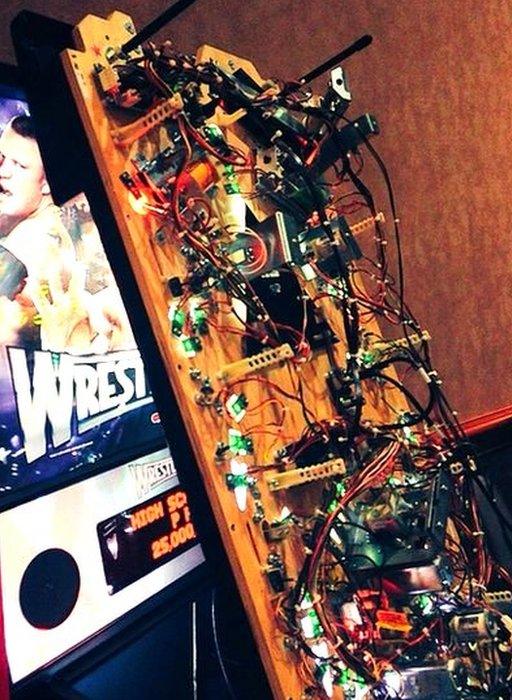
Under the bonnet of a modern pinball machine.
As part of the design process, all of Stern's staff help out with the user testing.
"Staff have to play for 15 minutes every day. If you don't want to play pinball, don't work for a pinball company," said Mr Stern.
"I'm 69 - I'm old and slow. I represent the player in the pub who's had a bucket-and-a-half of beer."
With the machines, retailing at between $5,000-$6,000, it is not a cheap hobby. Mr Stern says his biggest customers are arcade owners, cinemas, collectors - and record buyers.
Record buyers are fast becoming a hot target market for other tech retailers too.
'Beautiful physical artefacts'
Martin Talbot, managing director of the UK Official Charts Company, predicts that vinyl sales alone are set to soar from £3m five years ago to being a £20m business in 2015.
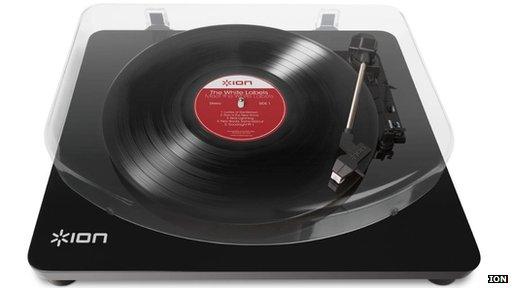
Ion Audio's new turntable has bluetooth and USB connectivity
Last year, more than one million vinyl record sales were made in the UK for the first time in 18 years.
"In an era when we're all talking about digital music, the fact that these beautiful physical artefacts are still as popular as they are is fantastic," Mr Talbot told BBC Radio 5 live recently.
"It's really remarkable."
The Official Chart Company is now planning to relaunch a separate chart for record sales in the UK - and firms making and selling turntables are also feeling the love.
"To be honest, we've always stocked and sold turntables at a fairly steady rate, but the past year has seen a 70% jump in the number of units we've sold," said Lol Lecanu, spokesperson for hi-fi specialists Richer Sounds.
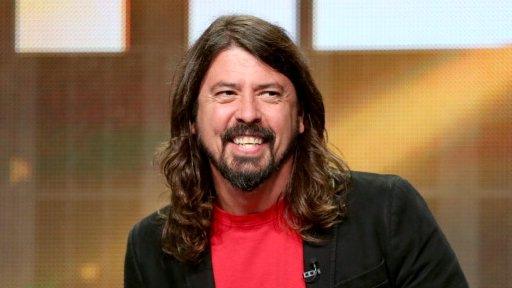
Rock star Dave Grohl introduced his daughter to vinyl when she was six
Celebrity endorsement always helps of course - rockstar Dave Grohl, whose bands include the Foo Fighters and Nirvana, has spoken about his love of records, external.
In a podcast with comedian Marc Maron, external he described getting a turntable for his then six-year-old daughter and giving her some Beatles records.
"I walked out of the room, an hour later she had all the records out on the floor, she had listened to them all," he said.
"She was looking at the liner notes, she was dancing, it was unbelievable."
Grohl added that he did not feel he was doing his daughter a disservice by introducing her to the Fab Four accompanied by the legendary scratch and hiss of the humble turntable.
"This is what it sounded like when I was a kid," he said.
"I'm not going to give her the audio file version."
- Published6 January 2015
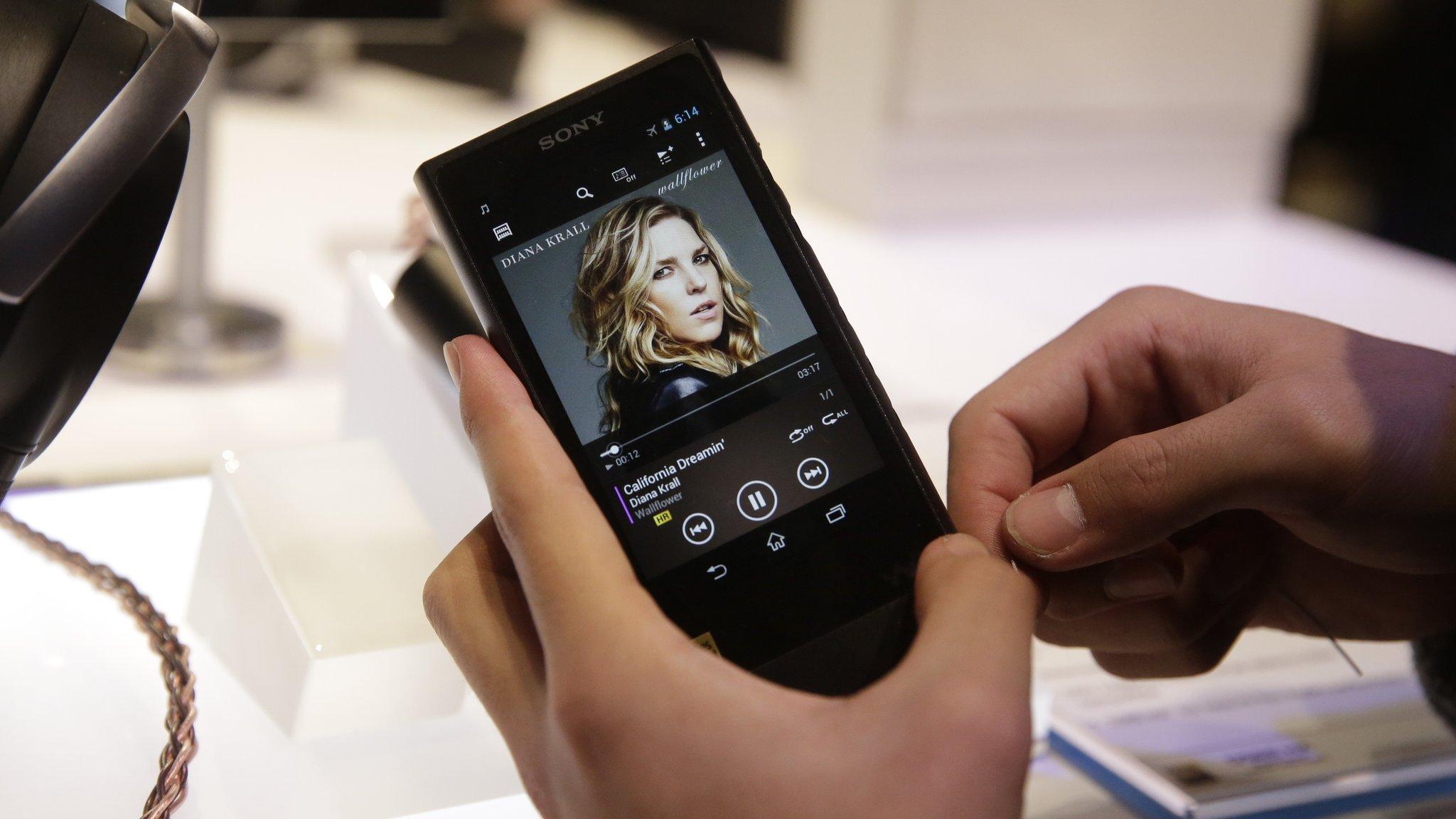
- Published14 January 2015
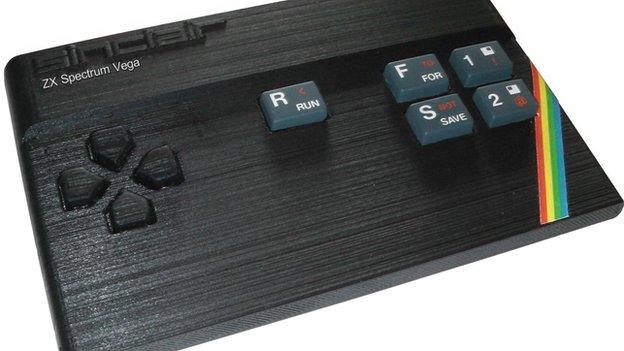
- Published25 September 2014
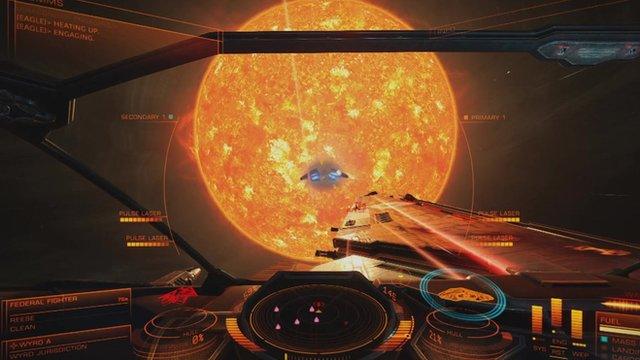
- Published8 October 2012
